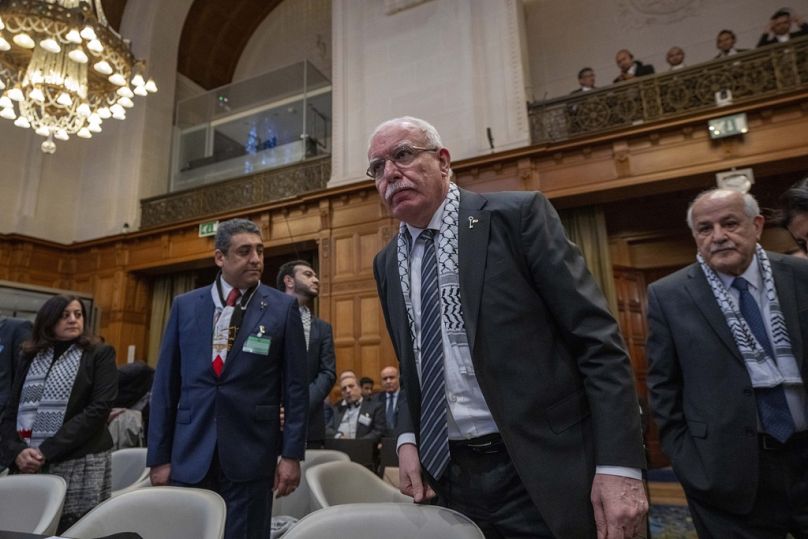The International Court of Justice started scrutinising on Monday the legality of Israel's occupation of land earmarked for a future Palestinian state.
The Palestinian foreign minister on Monday urged the United Nation’s top court to declare that Israel’s occupation of lands sought for a Palestinian state is illegal and must end immediately and unconditionally.
The allegation came at the start of historic hearings at the International Court of Justice into the legality of Israel’s 57-year occupation of parts of the West Bank, the Gaza Strip and annexed east Jerusalem.
The case comes against the backdrop of the Israel-Hamas war. It immediately became a focal point of the day — even though the hearings were meant to centre on Israel’s open-ended control over Palestinian territory.
Palestinian Foreign Affairs Minister Riyad al-Maliki said he stood before the UN court “as 2.3 million Palestinians in Gaza, half of them children, are besieged and bombed, killed and maimed, starved and displaced.”
“More than 3.5 million Palestinians in the West Bank, including in Jerusalem, are subjected to colonisation of their territory and racist violence that enables it,” he added.
The session, expected to last six days, follows a request by the UN General Assembly for a non-binding advisory opinion into Israel’s policies in the occupied territories.
Judges will likely take months to issue an opinion.
“The United Nations enshrined in its charter the rights of all peoples to self-determination and pledged to rid the world of the gravest breaches of this right, namely colonialism and apartheid,” al-Maliki said.
“Yet for decades, the Palestinian people have been denied this right and have endured both colonialism and apartheid.”
The Palestinians argue that Israel, by annexing large swaths of occupied land, has violated the prohibition on territorial conquest and the Palestinians’ right to self-determination.
They claim Israel has imposed a system of racial discrimination and apartheid - something Israel denies.
“This occupation is annexation and supremacist in nature,” al-Maliki said.
He appealed to the court to uphold the Palestinian right to self-determination and declare “that the Israeli occupation is illegal and must end immediately, totally and unconditionally.”
After the Palestinians’ address, an unprecedented 51 countries and three international organisations will speak.
Israel is not scheduled to speak during the hearings, but could submit a written statement.












